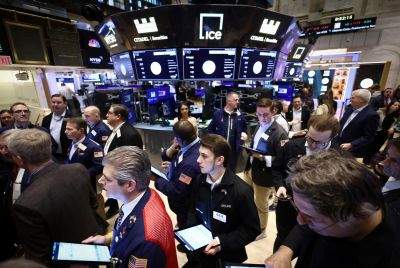Insta-Famous, Bankrupt in Reality: Influencer With 100M Followers Is So In Debt, She Couldn't Pay For Her Own Parking Ticket
Influencers often portray glamorous lifestyles online, but the reality is far different

Despite the glamorous lives influencers portray on Instagram and TikTok, a surprising number are struggling financially. One woman recently shared her eye-opening experience, revealing that many social media stars, often admired for their lavish lifestyles, are actually burdened by significant debt.
In a viral TikTok video, she recounted how a childhood friend, an influencer with over a million followers, revealed the financial challenges behind her seemingly glamorous facade. This story sheds light on the hidden cost of fame and encourages people to stop comparing themselves to the idealized personas they see online.
The Dark Side Of Social Media Fame
In the TikTok video, Ari, an influencer, said: "Please stop comparing yourself to the Insta baddies and the TikTok baddies. You see them travelling the world with the coolest clothes and [stuff] like that. They're in debt. Credit card debt."
Ari received an unexpected direct message from a childhood friend, a popular Instagram influencer with over a million followers. The friend, known for her lavish travels, requested to stay with Ari, raising her suspicions.
Ari initially dismissed the friend's request for a place to stay as a casual favour, but her suspicions grew as they went out together. The influencer repeatedly asked Ari and her boyfriend to cover the expenses. The situation escalated when Ari asked the influencer to pay the parking costs.
The influencer broke down in tears at an ATM, admitting she had no money. This revelation took aback Ari. "How did you come all the way from Rome to Miami and have no money?" she asked. "Like, she was literally in Rome, travelling in Europe. How do you have no money?!"
The influencer revealed her credit card balance, which was a staggering $10,000 in debt. Ari was shocked and immediately realised she was being taken advantage of. She asked the influencer to leave her home.
"The moral of the story is, do not compare yourselves with other people online cause you really don't know their life," Ari says. Ari's experience is not uncommon, and the deception practised by influencers extends beyond extravagant vacations.
It's well-known that influencers often rent cars, houses, and even film sets to create a glamorous image, but the reality behind their carefully curated content is often vastly different. For example, fitness influencer Ifende Uzoka secretly listed her landlord's home on Airbnb, using the rental income to finance extravagant trips to Dubai.
Kaila Uli, a former model and TikToker, gained widespread attention earlier this year for exposing a long-standing industry secret. "Do you guys know how easy it is to fake being wealthy for the internet here in L.A.?" she asked in a video about the topic.
She explained that luxury cars and homes can be rented for short periods in Los Angeles, often for as little as $100, making it simple to create a false impression of wealth for social media. Many private jet photos and videos have been exposed as fabricated, often shot on film sets.
Influencers rent cars or homes for short periods and create months' worth of content, deceiving viewers into believing they own those luxury items. Many Influencers utilise rental services like "Rent the Runway" to access designer clothing and accessories without significant upfront costs.
The Future Of Influencing: A Bubble Bursting?
Additionally, many influencers purchase followers to inflate their audience size and achieve influencer-level status artificially. As evidenced by Ari's friend, many influencers rely on credit cards to maintain their lifestyles.
Furthermore, some influencers' success can be attributed to their privileged backgrounds, which allow them to flaunt wealth inherited from their families. The world of influencers bears striking similarities to Hollywood, which it is gradually supplanting.
Research indicates that only a small percentage of actors, including renowned names like Julia Roberts and George Clooney, earn a sustainable living from acting. Similarly, a tiny fraction of influencers achieve substantial financial success.
According to NeoReach (via Wall Street Journal), a leading influencer marketing firm, only 13 percent of influencers earn six figures annually, while 48 percent make less than $15,000. This data highlights the disparity in influencer earnings, with a significant portion falling within the mid-range and many being able to sustain themselves through content creation.
Despite the potential for lucrative earnings, becoming a successful influencer is increasingly challenging as the market becomes saturated. Like multi-level marketing schemes, early adopters often reap significant financial rewards, while later entrants face limited opportunities.
The ongoing adjustments to content creator payment models on platforms like TikTok have led to significant income declines for many influencers. Additionally, social media influencers face competition from a new wave of AI-powered Instagrammers, TikTok, and YouTube accounts.
The unsustainable "bubble" surrounding the influencer industry has been a subject of speculation for years, with many predicting its imminent collapse. However, despite these forecasts, the influencer bubble has yet to burst.
The glamorous image portrayed by influencers is often illusory, and it's wise to approach social media content with scepticism and avoid comparing oneself to the aspirational lifestyles presented online.
© Copyright IBTimes 2025. All rights reserved.






















